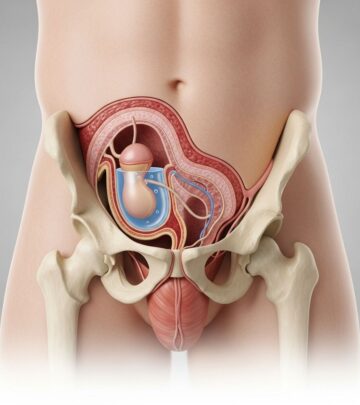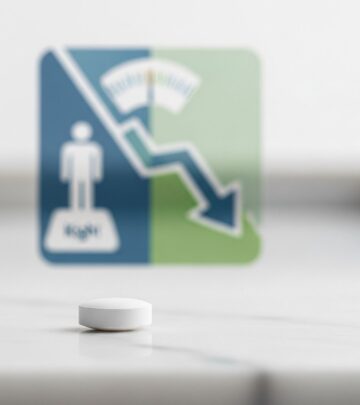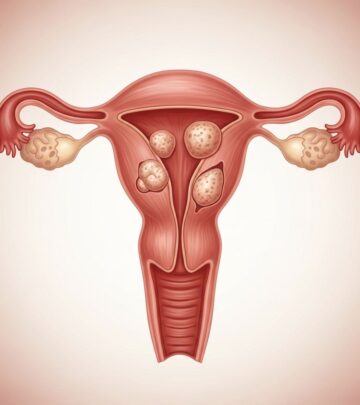Morning Sickness: Symptoms, Causes and Management during Pregnancy
Understand morning sickness in pregnancy: its causes, when it occurs, severity levels, and effective strategies for relief and prevention.

Morning Sickness: Overview
Morning sickness describes the experience of nausea and sometimes vomiting during pregnancy. While commonly associated with the morning hours, these symptoms can occur at any time of day or night. It is especially prevalent during the first trimester and affects many pregnant individuals, sometimes persisting beyond the initial months.
Symptoms of Morning Sickness
- Nausea: Often described as a feeling of wanting to vomit, with or without the actual act.
- Vomiting: Typically follows nausea; frequency can vary from occasional to several episodes per day.
- Triggered by Odors and Foods: Certain smells or foods may precipitate nausea and vomiting.
- Timing: Symptoms most commonly start before nine weeks of pregnancy, improving by mid or late second trimester. For some, symptoms persist throughout pregnancy.
Severity varies: While many experience mild discomfort, severe cases can lead to dehydration and weight loss, necessitating medical attention.
When to Seek Medical Care?
It is essential to contact your health care provider if you:
- Are unable to keep any food or fluids down for more than 24 hours
- Have signs of dehydration (such as infrequent urination, dark urine, dizziness)
- Experience severe, persistent vomiting
- Notice significant weight loss during pregnancy
What Causes Morning Sickness?
The exact causes of morning sickness remain unclear, but several factors may contribute:
- Hormonal Changes: Rapid increase of hormones such as human chorionic gonadotropin (hCG) and estrogen during early pregnancy.
- Heightened sense of smell may trigger nausea more easily.
- Gastrointestinal changes: Changes in digestive function due to pregnancy.
- Stress or fatigue: Physical and emotional stress may worsen symptoms.
- Rarely, Medical Conditions: Conditions unrelated to pregnancy, like thyroid or gallbladder disease, can cause serious nausea or vomiting.
Who’s at Risk?
While morning sickness can affect anyone who is pregnant, certain factors may increase susceptibility:
- History of nausea and vomiting during previous pregnancies
- First-time pregnancies
- Multiple pregnancies (twins, triplets, etc.)
- Family history of morning sickness or hyperemesis gravidarum
Hyperemesis Gravidarum: Severe Morning Sickness
In rare cases, morning sickness escalates to hyperemesis gravidarum.
| Feature | Normal Morning Sickness | Hyperemesis Gravidarum |
|---|---|---|
| Severity | Mild to moderate nausea/vomiting | Severe, persistent vomiting |
| Fluid loss | Rare | Serious fluid loss (>5% body weight) |
| Effect on nutrition | Usually does not impair baby’s growth | Possible poor weight gain for baby |
| Treatment | Home remedies/medications | May require hospitalization for IV fluids/nutrition |
Symptoms of hyperemesis gravidarum can include severe, uncontrolled vomiting, dehydration, electrolyte imbalances, and significant weight loss.
Complications of Morning Sickness
Mild nausea and vomiting are generally not harmful. Potential complications mainly arise in severe cases:
- Dehydration: Loss of fluids due to vomiting can lead to dehydration.
- Electrolyte Imbalance: Disturbance in body sodium or potassium affecting organ function.
- Weight Loss: Losing more than 5% pre-pregnancy weight, especially in hyperemesis gravidarum.
- Reduced urination: Due to inadequate fluid intake.
- Possible effect on baby’s growth: Research is mixed for hyperemesis gravidarum.
Diagnosis of Morning Sickness
Diagnosis is based on your reported symptoms. Your practitioner may perform:
- Physical examination
- Urine tests to check for dehydration and electrolytes
- Blood tests if hyperemesis gravidarum is suspected
Treatment and Management of Morning Sickness
- Dietary Adjustments:
- Eat small, frequent snacks throughout the day
- Avoid triggers like certain odors or foods
- Bland foods (crackers, toast, rice) seem easiest to tolerate
- Hydration: Sip fluids like water, ginger ale, or clear broths regularly
- Vitamin B-6 (pyridoxine): Supplements may help reduce symptoms
- Ginger: Consuming ginger in various forms (tea, chews, ginger ale) can relieve nausea
- Medications:
- Non-prescription options: Doxylamine (Unisom)
- Prescription anti-nausea medications if symptoms are severe
- Hospitalization: In cases of hyperemesis gravidarum, intravenous fluids and nutrition, and sometimes a feeding tube, may be required
- Monitor weight, hydration, urine output
- Consult your practitioner before taking any medicine or supplement during pregnancy
Prevention of Morning Sickness
There is no guaranteed method for preventing morning sickness, but these strategies may help reduce risk:
- Take a prenatal vitamin supplement before and during pregnancy
- Maintain a balanced diet and healthy weight prior to conception
- Avoid known triggers like strong smells and certain foods
Prognosis and Outlook
- Most cases of morning sickness improve by the middle or end of the second trimester.
- Mild morning sickness generally causes no harm to mother or baby.
- Severe cases, when properly managed, may require medical support but have positive outcomes in most cases.
Frequently Asked Questions (FAQs)
Q: Is morning sickness only in the morning?
A: No; morning sickness can occur at any time of day or night.
Q: Does morning sickness mean my pregnancy is healthy?
A: While uncomfortable, morning sickness is often considered a normal part of pregnancy and may indicate healthy hormonal changes.
Q: What are the risk factors for severe nausea during pregnancy?
A: Increased risk occurs in first-time pregnancies, individuals carrying multiples (twins, triplets), and those with a history of morning sickness or a family predisposition.
Q: How should I manage morning sickness at home?
A: Eat small snacks often, stay hydrated, avoid triggers, use ginger or vitamin B-6, and contact a provider if symptoms worsen.
Q: When is morning sickness a cause for concern?
A: Severe, persistent vomiting, inability to retain fluids or food, signs of dehydration, and significant weight loss should prompt immediate medical attention.
Q: Can morning sickness harm my baby?
A: Mild morning sickness does not affect baby’s growth, but severe cases require medical support to ensure both mother and baby remain healthy.
Summary Table: Morning Sickness at a Glance
| Aspect | Details |
|---|---|
| Typical symptoms | Nausea, vomiting, triggered by smells/foods |
| Onset | Before 9 weeks; improves by mid-second trimester |
| Causes | Hormonal surge, heightened smell, GI changes |
| Severe form | Hyperemesis gravidarum (hospital care may be needed) |
| Treatment | Diet, hydration, ginger, vitamin B-6, medication |
| Prevention | No sure prevention; vitamins may help |
Key Points for Expectant Mothers
- Morning sickness is common and manageable for most individuals.
- Consult healthcare providers promptly for worsening symptoms.
- Simple dietary changes and safe remedies can bring relief.
- Severe cases are treatable – timely intervention leads to the best outcomes.
Read full bio of medha deb












